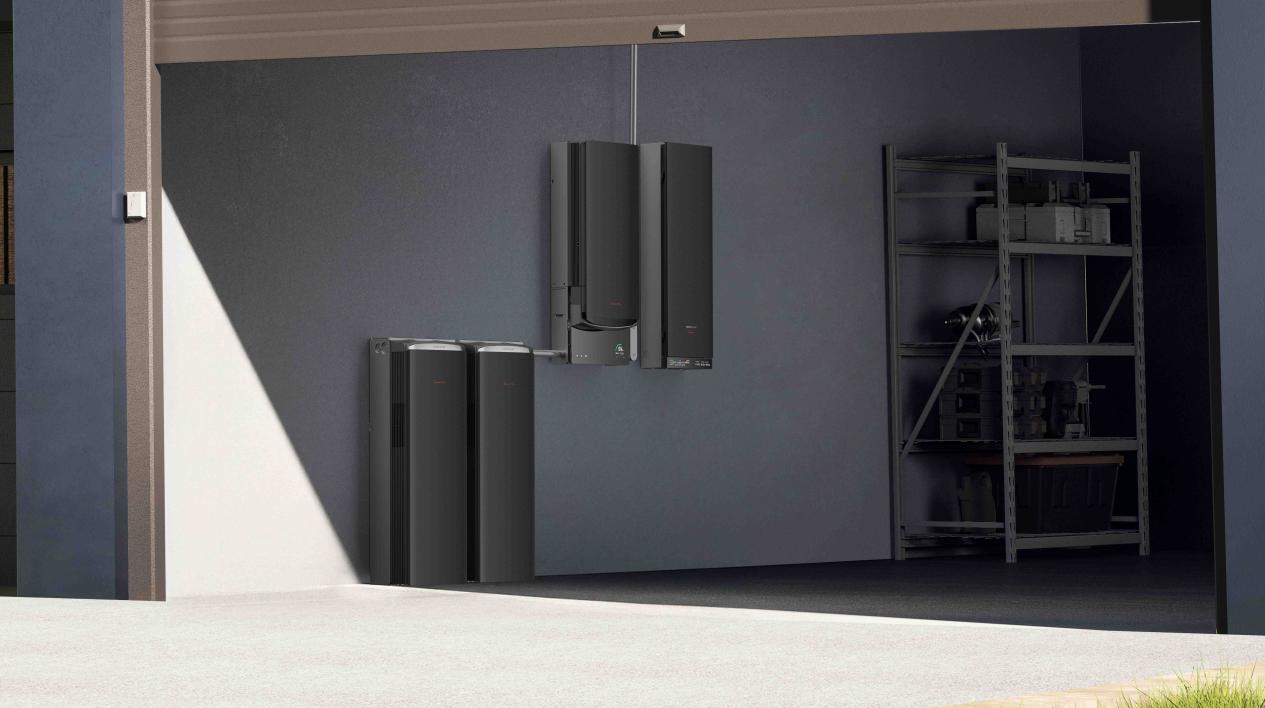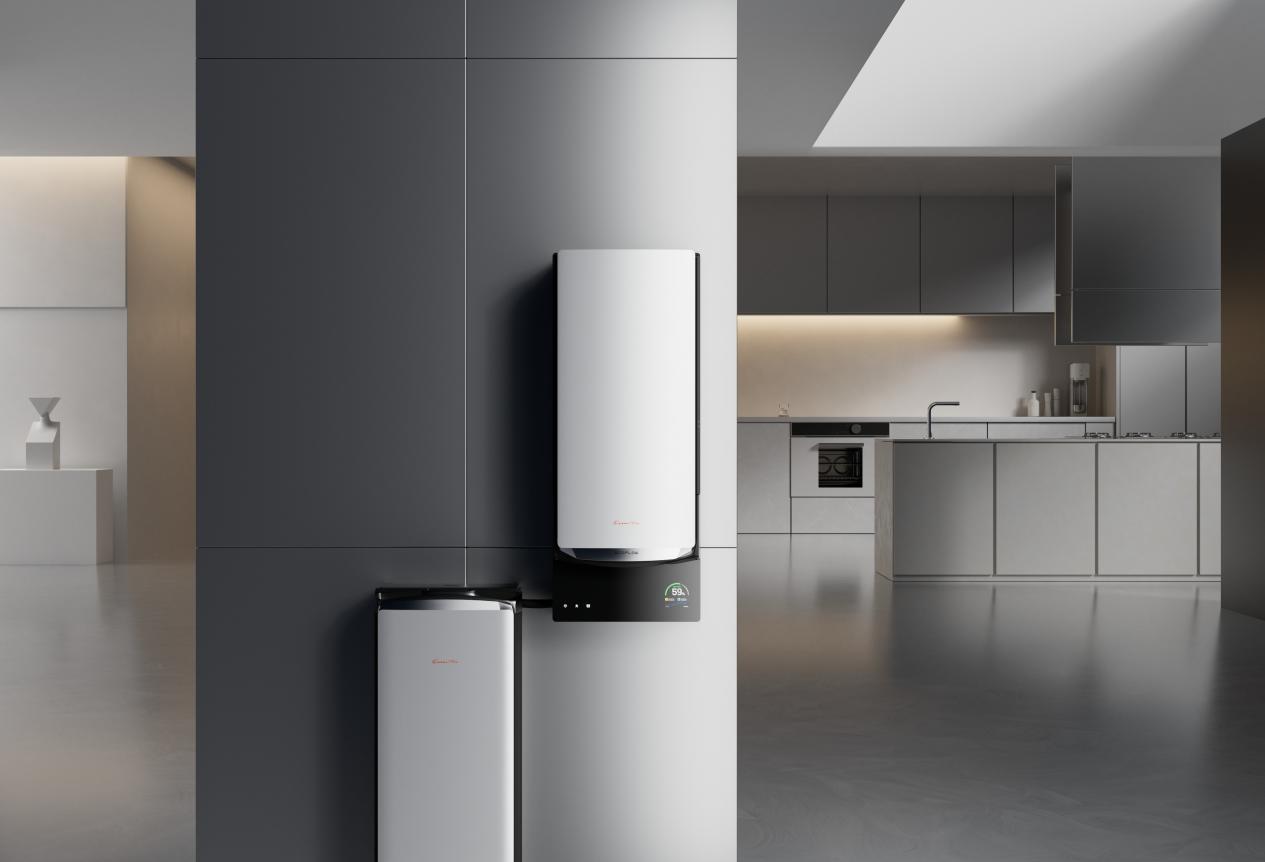How Long Can Solar Battery Power a House During an Outage?
Imagine you're cooking dinner, lights are on, the kids are watching TV—and suddenly, everything goes dark. No warning. No time to react. This is not just a small inconvenience. It's a reminder that homes depend on constant power. That’s why solar power batteries for whole homes are now a serious option, especially for large houses. But how long can they actually last?
On Solar Power Batteries for Homes
Solar power batteries for homes store the energy collected from rooftop solar panels. During the day, solar panels gather electricity. That electricity can be used right away or saved in the battery for later. When the power goes out, the stored energy becomes your backup source.
Let’s look at EcoFlow OCEAN Pro as an example. This system stores up to 80 kWh when fully expanded. It supports 24kW continuous output, which means it can run many home appliances at once. It also handles tough environments like floods or heat up to 140°F.
OCEAN Pro is designed for people who want to keep their whole house running, not just one or two rooms.
Take a look at the EcoFlow OCEAN Pro Battery's key strengths as a whole-house backup
Feature Category | What It Offers |
Storage Capacity | Expandable from 10kWh up to 80kWh for large home power needs |
Power Output | Supports 24kW continuous and 50kW peak output with 205A startup current |
Solar Input | Accepts up to 40kW solar input with 8 MPPT channels |
Whole-Home Readiness | Runs HVAC, kitchen, laundry, and more simultaneously |
Flood Resistance | Handles flood depths up to 3.3 feet |
Heat Protection | Operates in temperatures up to 140°F |
Fire Safety | Built-in fire suppression module and explosion-proof valve |
Design Options | Chassis in aluminum, walnut wood, or carbon fiber with NFC lighting |
Smart Integration | AI-powered assistant and energy dashboard; integrates with smart home systems |
Durability | Rated IP67 for water and dust protection |
Warranty | Industry-leading 15-year warranty |
Modularity | Start small and scale later with stackable battery units |


When to Consider Solar Power Batteries for Homes Rather Than Traditional Generators
Whole-house power needs are much bigger than just lights and phone chargers. You need backup for large appliances, air conditioning, kitchen equipment, heating systems, and more. In this case, traditional gas or diesel generators are often used. But they also bring many problems:
They burn fuel, which must be stored safely
They make a loud noise and release harmful smoke
They need repairs, oil changes, and care over time
They may stop working in bad weather or after long storage
For people with large homes, these problems become even harder. More fuel is needed. More noise is created. Maintenance takes more time.
Solar power batteries can be a better fit for whole-house needs. Here is why:
They charge during the day using solar panels
They work quietly and do not create air pollution
They do not need gasoline or diesel
They are safe to use often, even when the grid is not down
Some systems, like EcoFlow OCEAN Pro, are made to handle large homes. They can run ovens, laundry machines, refrigerators, and heating or cooling systems. With enough battery storage, you can keep your full home running for hours or even days.
If your goal is to power everything, not just a few lights, then solar power batteries give strong and flexible support. They also help lower your power bill during normal days by storing solar energy for evening use.
How Long Can Solar Battery Power a House During an Outage?
Let’s take a common base size, a 10kWh solar battery as a simple example.
By Appliances
The table below shows how long a 10kWh battery might power certain household items:
Appliance | Power Used (Watts) | Estimated Time (10kWh) |
Refrigerator | 150W | About 66 hours |
Wi-Fi Router + Modem | 20W | About 500 hours |
LED Lights (10 bulbs) | 100W | About 100 hours |
Window AC Unit | 1000W | About 10 hours |
Microwave | 1200W | About 8 hours (in use) |
Electric Oven (active use) | 2000W | About 5 hours (in use) |
Washing Machine | 500W | About 20 hours |
TV (55 inch LED) | 100W | About 100 hours |
Keep in mind: Most people don’t use all devices at once. You can choose what to run, and for how long. That helps your battery last longer.
By House Size
Larger homes use more power. Here’s a basic idea of how long 10kWh might last:
House Size | Daily Power Use (kWh) | Hours of Backup with 10kWh |
Small Apartment | 5–8 kWh | 24–36 hours |
2-Bedroom Home | 12–15 kWh | 12–18 hours |
3–4 Bedroom House | 20–25 kWh | 6–10 hours |
Large House (5+) | 30–40 kWh | 3–6 hours |
For full-day backup, large homes often use multiple battery units, like stacking eight 10kWh EcoFlow OCEAN Pro batteries for up to 80kWh.
How to Size Solar Power Batteries for Your Whole House
First, check your power bills. Look for your average daily energy use in kWh. This tells you how much energy your home needs.
Then ask: Do you want backup for all devices or only the important ones? If you only need lights, internet, and the fridge, a 10 kWh system may be enough. If you want to power HVAC, ovens, and washers too, you will need more.
Here is a simple method:
List your must-run devices.
Add their energy needs in kWh.
Multiply that by how many hours you want to stay powered.
For full-home backup, many people need 20 kWh to 40 kWh. Some may even go up to 80 kWh. The EcoFlow OCEAN Pro battery system can scale up, so you can start with one battery and add more later.
Also, think about solar panel size. You may want to recharge during the day. If you have enough panels, the battery can refill between outages or overnight use.
Solar Battery Backup: Key Insights
Power outages are not rare anymore. From storms to wildfires to overloaded grids, homes face more risks every year.
Solar power batteries for homes give you more than power. They offer quiet, clean, and reliable energy. With large systems like the EcoFlow OCEAN Pro, even big homes can stay fully powered during long blackouts.
Here’s what you should remember:
A 10 kWh battery can run small homes for a day or large homes for a few hours
Bigger homes may need 40 kWh or more to stay online for 1–2 days
EcoFlow OCEAN Pro offers scalable storage up to 80 kWh
Solar batteries are cleaner and quieter than fuel generators
Daily use plus blackout protection adds long-term value
Check your power use, set your backup goals, and choose the system size that fits your life. Peace of mind begins with smart energy planning.


FAQs about Solar Battery
Q1. How many kWh do I need to power my whole house?
A: It depends on how much energy your home uses in one day.
A small home may need 10–15 kWh.
A medium-sized house may need 20–30 kWh.
A large house with AC, laundry, and electric cooking may need 40–80kWh.
Check your monthly power bill to find your average daily use. That number helps you choose the right battery size.
Q2. What happens if my battery runs out during an outage?
A: If your battery is empty and there’s no sun, power will stop. To avoid this, you can:
- Add more battery storage
- Use a gas generator as backup
- Reduce power use during blackouts
Some systems also let you check how much battery is left from your phone. That helps you plan better during emergencies.
Q3. Can I start small and expand later?
A: Yes. Many large systems are modular. That means you can begin with one battery and add more later as your needs grow. For example, OCEAN Pro starts with 10 kWh and expands to 80 kWh. This is good for families who plan to:
Add EVs
Install more solar panels
Increase home size or number of appliances
Q4. Do solar battery systems help lower my energy bill?
A: Yes, they can. During the day, solar panels charge your battery. You can then use that stored power at night or during peak hours when grid power costs more. Some homes also join "virtual power plants" to sell extra power back. That adds extra savings or credits.
Q5. How long does the average power outage last in the U.S.?
A: In 2022, U.S. homes had an average of 5.5 hours of power interruptions over the year. This number includes major events like storms or wildfires. Without major events, the average outage time stayed close to 2 hours per year, which has been the trend since 2013. Some years were worse. In 2020 and 2017, outage times went above 7 hours due to more severe events.
For homes with important systems, like heating, cooling, or medical devices, even a short outage can cause trouble. That is why more families are choosing large solar battery systems for backup power.
For press requests or interview opportunities, reach out to our media team
media.na@ecoflow.com